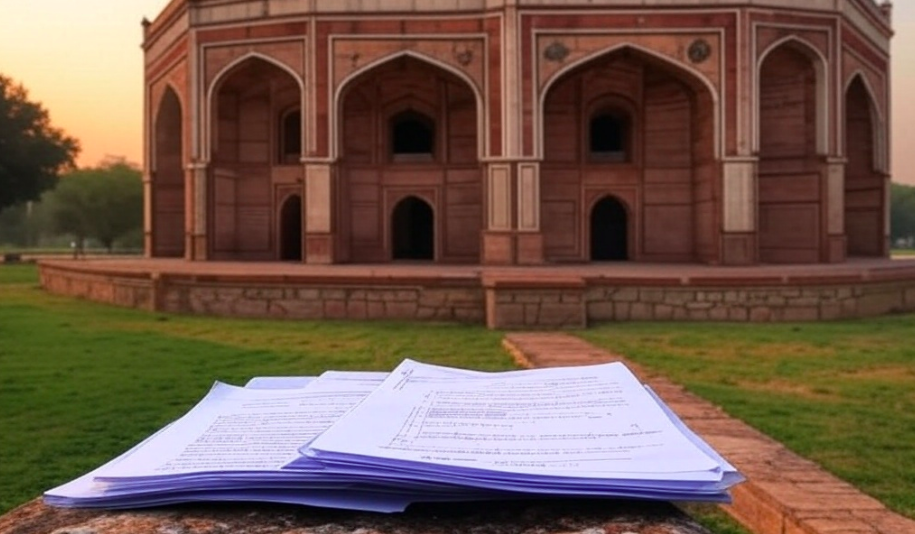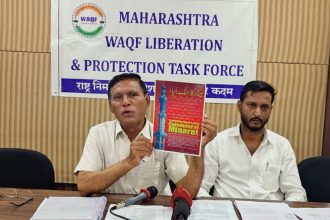Tausif Ahmad for BeyondHeadlines
Being a subject of debate, recognition is one of the most serious issues in the contemporary era. Recognition means to identify someone with their due rights, dignity and existence.
Politics of recognition has two broad connotations, one is related to identify which accounts with the individual’s dignity and self-respect and the other is redistribution, which means socio-economic and political developments of an individual.
Recognition can be taken in various forms, it can be with the individual, group, race or society. If an individual, group or the society does not recognise duly, it means they misrecognise.
For example, for centuries, the Europeans recognised themselves as civilised people and misrecognised the third world countries as uncivilised. This act of the British is a matter of recognition as British recognising themselves as civilised might be a truth, but they misrecognised the East. The British took themselves an obligation called ‘white men burden.’ It was a burden which no one gave them to carry. And for this self-carried, so-called burden, they were justifying the exploitation of the whole world. They colonised the whole world and exploited them for centuries. Hitherto, Indian society has a long history of their civilisation, and this is something that every corner of the world is aware of. Nonetheless, India got independence in 1947 which put the Britishers on the backfoot.
After the transfer of power, the era of liberal democracy has begun, and hence, equal liberty, rights, and opportunity have been given to all the people living in India irrespective of their religion, caste, class, creed, and culture. The politics was broadly based on the secular principles where they try to make Indian society equal.
In this era, the nature of Muslim politics was broadly based on religious identity. Because of the partition, the Muslims were in a defensive mode and their concern was to protect their religious identity and culture irrespective of the fact that most of the Muslim society was at the strands of rest of the society. It was believed that Muslims of India need only one thing- the protection of their religion and the cultural symbols (protection of some religious institution like AIMPLB, Imarat-e-Sharia) etc.
This is surprising how Urdu became so “Islamic” after the independence that they fought for Urdu for four decades in Bihar. This is just one example of the nature of the politics of Muslim elites, particularly the Ashrafites’ politics. Indian political elite (irrespective of their religion) want a society (Muslim society) of a homogeneous form where the oppressor and the oppressed should be treated as equal.
This sounds awkward but the reality is that in the Indian Muslim society, Muslims and they are divided into the caste lines, and the fact is that most of them belong to lower caste and they are the most marginalised section of the society. This theory went on for long (almost four decades) unless and until they raised a demand for social justice rather what the traditional political leaders among the Muslims always demanded. This demand came from the backward Muslims among the society called “Pasmanda Muslims”.
The Pasmanda Muslims make more than 85% of the total Muslim population, and their problem is mainly a socio-economic and political in nature, but their demand could not be addressed by the state because of communal-secular debate of the Indian mainstream politics.
The demand of Pasmanda Muslims that is raised by the 1990s was to recognise them as backward Muslims and give a reservation in the SC list. Because these are Muslims who are of the same caste as of Hindu OBCs and SCs, but they weren’t given reservation, because the caste among Muslims wasn’t recognised by the Indian state (in Mandal commission, 84 castes among the Muslims are recognised and gave reservation in the OBC list but the leaders of Pasmanda Muslims are dissatisfied with this, because they say that Muslims in OBC list are not getting benefit of it, hence they demand to put the Pasmanda Muslims in SC list).
Only the government was not responsible for that. There were self-declared “Muslim” leaders who come from upper caste Muslim society and therefore, they defend Islam on the theological basis and neglect the sociological reality what the British had seen. After the presidential order of 1950, the government gave the benefit of reservation and recognised in scheduled caste only those people who professed to be a Hindu.
I think the denotation of Hindu is against the principle of secularism. But we had seen the two amendments on this when in 1956, the Sikhs got recognised as Dalits and henceforth got listed in SC list. Again in 1990, the Neo-Buddhist (the Hindu Dalit who converted to Buddhism with Dr Ambedkar in 1956) got listed in SC list. For that matter, till now the Christian and Muslims are out of this list. This is a serious concern. It’s not that the demand for recognition as a Dalit from the backward Muslim has not been raised. A movement was started in the 1990s and speeded all over India to put the Dalit Muslims under the SC list. But not only the government of India is silent over this, the Indian political parties, whether is it a regional or national, has kept silence on this issue.
Why Pasmanda issue does not get a space in the media and academics?
Here comes the issue of recognition. The Muslims who are fighting is against the popular image of homogeneous Muslim society. The Ashrafites (foreign origin Muslims who got benefit from the popular secularism and communalism debate and politics) are always against this recognition. And this is noteworthy that they are those who mostly represent the “Muslims” in parliament and assemblies. They demand to give quota to all the Muslims and recognise all the Muslims as backwards. This is against the constitutional principle, but they are demanding this. Their concern is always a security issue that communalism is a bigger threat to Muslims and therefore, the state should focus on the security of Muslims. No doubt, those who do politics on these issues on behalf of the whole Muslim society is a real threat to the demand of backwards Muslims who are fighting for social justice.
Secondly, there are political parties, whether a right-wing or centrist party, they always ignore the real issue and listen to these benefitted Muslim representatives. Because the right wing accepts that there is a Dalit Muslim group who are not conqueror and meanwhile they belonged to this soil for the millenniums, their politics of hatred and the image of Muslims as a foreigner and conqueror will vanish and this will be a danger for their politics. For the secular parties, the focus revolves around the concern of security of the Muslims because these are the works for which, they have nothing to do. If they recognise Pasmanda Muslims as a different entity, they will bargain in the political space and demand for redistribution. Whether this will a benefit for them or not, Muslims will be benefitted, and it will also create danger for the so-called secular parties because it will eventually threaten their traditional vote bank. That is why they want that the Indian Muslim should only focus on the security and not on recognition and social justice.
Therefore, the leaders of the backward Muslims need to mobilise people on the issue of recognition and social justice. Muslims who belong to the OBC and SC, should come together and demand from the state over this issue. The movement that was started earlier could not sustain because of lack a vision. For instance, the two big leaders of Pasmanda movements Ali Anwar Ansari and Dr Ejaz Ali were appointed as Rajya Sabha MP by the JD(U) and after that, the movement, that could go further, was stopped. This was a time when political equation was changing (Lalu era was ended whose equation was always M-Y), and Pasmanda leader might be in a position of political bargaining but it didn’t happen. In the upcoming election, this movement needs a larger mobilisation and strong vision for the upliftment and recognition of the most backward people of society so that they can get due right and representation in the decision making. If the backwards won’t mobilise, there is no one who will stand for the Pasmanda Muslims because this issue will not benefit others except those who demand and fight for it.
(Author is a Research Scholar at IGNOU. He can be contacted at tausif.ahmad12@gmail.com)
References:
1. Nancy Fraser and Axel Honneth, 2003, Redistribution and Recognition? A Political-Philosophical Exchange, Verso, New York.
2. Charles Taylor, 1994, ‘The Politics of Recognition,’ in Amy Guttmann ed., Multiculturalism: Examining the Politics of Recognition, Princeton University Press, Princeton,
3. Imtiaz Ahmad, (1973) Caste and Social Stratification among the Muslims of India, Manohar: New Delhi
4. Ali Anwar, (2001) Masawat Ki Jung, Vaani Prakashan: New Delhi
5. Mohammad Sajjad, (2014) Muslim Politics in Bihar: Routledge Publications. India.
6. Zoya Hasan, (2009), Politics of Inclusion: Caste, Minorities and Affirmative Action, Oxford University Press, New Delhi,
7. Imtiaz Ahmad, (1967) the Ashraf-Ajlaf Categories in Indo-Muslim Society. Economic and Political Weekly 11: 887-90.
8. Ali Anwar, (2004) Dalit Musalman (Dalit Muslims), (Booklet), Vani Prakashan, New Delhi.
9. Government of India (1996) Mandal Commission Report of the Backward Classes Commission, 1980, Akalank Publications, New Delhi.
10. Manjur Ali, Politics of Pasmanda Muslims: A case study of Bihar, History and Society of South Asia, Working Paper 1, July 2010.
11. Imtiaz Ahmad, (2007) Can there be a category called Dalit Muslim?’ in Imtiaz Ahmad and Shashi Bhushan Upadhyay (eds.) Dalit Assertion in Society, Literature and History, Deshkal Society, Orient Longman, New Delhi.









